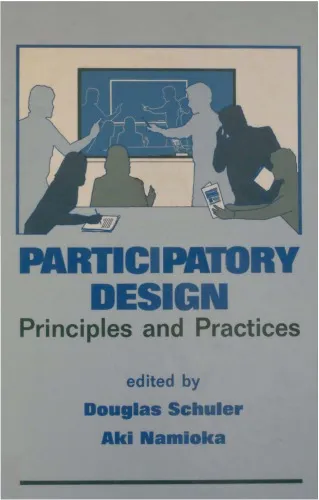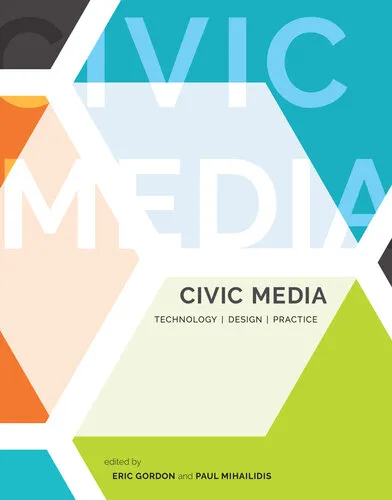Participatory Design Theory: Using Technology and Social Media to Foster Civic Engagement
4.0
Reviews from our users

You Can Ask your questions from this book's AI after Login
Each download or ask from book AI costs 2 points. To earn more free points, please visit the Points Guide Page and complete some valuable actions.Related Refrences:
Introduction
Welcome to Participatory Design Theory: Using Technology and Social Media to Foster Civic Engagement, a comprehensive exploration of how participatory design methods, when blended with emerging technologies, can empower communities and transform civic engagement. Edited by Oswald Devisch, Liesbeth Huybrechts, and Roel De Ridder, this book offers a multidisciplinary perspective on the intersection of design, technology, and community action. In a world increasingly connected through social media and digital platforms, this book serves as a vital resource for researchers, practitioners, civic designers, and technology enthusiasts striving to create inclusive, collaborative, and effective civic initiatives.
At its core, Participatory Design Theory delves into the evolving relationship between citizens, technology, and governance. It explores how participatory processes can address societal challenges and foster a sense of agency, ownership, and responsibility among community members. The book is anchored not only in academic theories but also in practical case studies, providing readers with actionable insights into applying participatory approaches in today's digital age.
Detailed Summary of the Book
The book is divided into sections that gradually unravel the complexities of participatory design. It begins by tracing the roots of participatory design theory and its evolution in response to technological advancements, particularly the rise of social media and ubiquitous computing. The authors highlight how participatory design has expanded beyond workplace applications to address broader societal issues such as urban development, healthcare, education, and environmental activism.
The core chapters showcase case studies where participatory design intersects with digital tools. These examples include designing urban spaces through social media feedback, creating interactive platforms for civic decision-making, and leveraging technology to amplify marginalized voices. By blending real-world projects with theoretical perspectives, the authors present a dynamic picture of how participatory design can adapt and thrive within the technological landscape of the 21st century.
A special emphasis is placed on the ethical dimensions of participatory design. The book explores questions of inclusivity, bias, power dynamics, and the challenges of fostering genuine dialogue in online spaces. The editors stress the importance of designing technology not only to engage but also to empower participants meaningfully, ensuring that every stakeholder has a voice in shaping the processes and outcomes.
Key Takeaways
- The rise of social media and technology has expanded the potential of participatory design, enabling greater reach and diverse engagement.
- Ethics and inclusivity are central to successful participatory practices in digital contexts.
- Case studies in the book demonstrate the tangible impact of participatory design on urban planning, governance, and societal challenges.
- Designers must consider power dynamics and strive to create technologies that foster equitable civic participation.
- Participatory design theories are interdisciplinary, combining insights from sociology, psychology, technology studies, and urbanism.
Famous Quotes from the Book
"Participatory design is not about designing for people but designing with people."
"Technology is a facilitator, not a solution. True empowerment stems from active participation."
"In a digital era, equitable participation requires not only access to tools but also a shared understanding of the design processes."
Why This Book Matters
In an age where civic disconnection and apathy are on the rise, Participatory Design Theory offers a framework to reclaim civic engagement through collaborative practices and modern technology. It bridges the gap between citizens, designers, and policymakers, illuminating how mutual understanding and shared creativity can overcome societal challenges. It is not merely a book on design but a call to action for more sustainable and inclusive futures.
Whether you are a seasoned professional or new to the field, this book serves as a guide, a source of inspiration, and a toolkit all at once. It underscores the potential of collective creativity harnessed through the dynamic interplay of humans and technology. For anyone invested in sustainable civic futures, this book is essential reading.
Free Direct Download
You Can Download this book after Login
Accessing books through legal platforms and public libraries not only supports the rights of authors and publishers but also contributes to the sustainability of reading culture. Before downloading, please take a moment to consider these options.
Find this book on other platforms:
WorldCat helps you find books in libraries worldwide.
See ratings, reviews, and discussions on Goodreads.
Find and buy rare or used books on AbeBooks.






